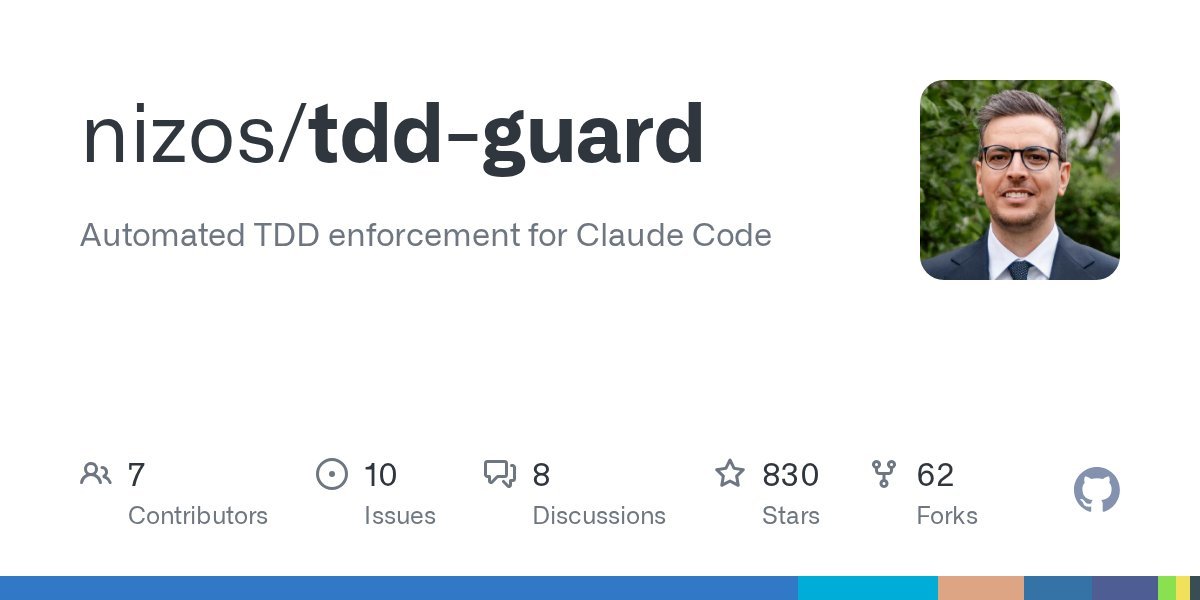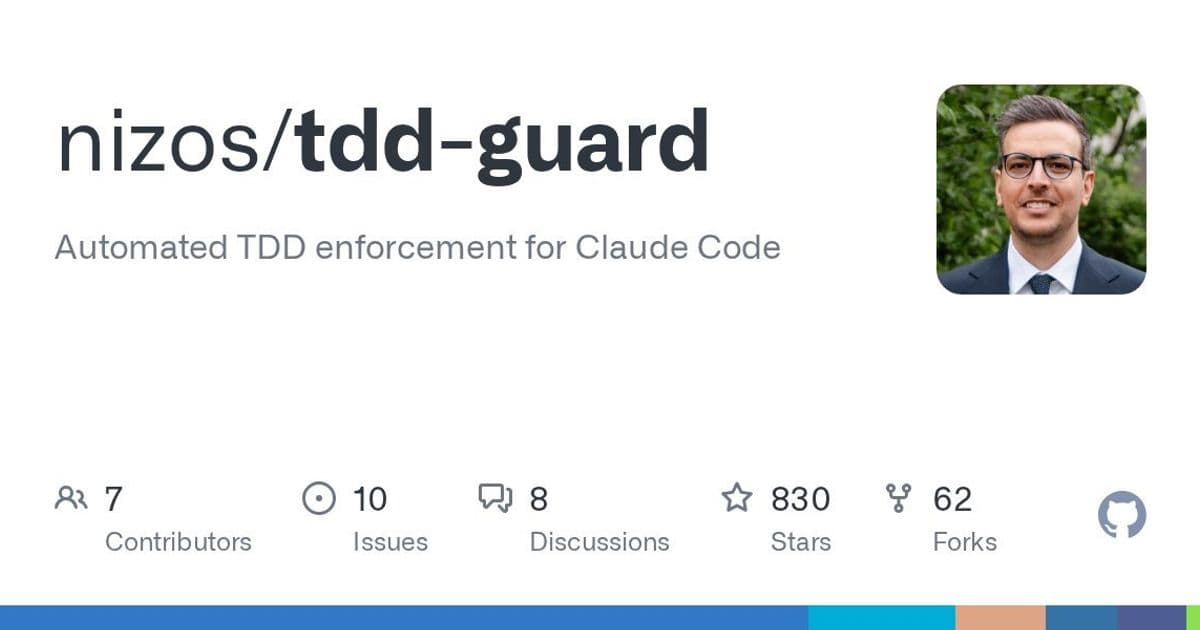TDD Guard is a groundbreaking tool that automates Test-Driven Development enforcement for AI coding agents like Claude Code, preventing skipped tests and over-implementation. By mandating the red-green-refactor cycle, it ensures AI-generated code meets rigorous quality standards across languages like Python, TypeScript, and Go. This innovation addresses critical gaps in AI-assisted development, promising more reliable and maintainable software.
The rise of AI coding assistants like Anthropic’s Claude Code has revolutionized developer productivity—but at a cost. These tools often prioritize speed over rigor, tempting developers to skip essential Test-Driven Development (TDD) practices. Enter TDD Guard, a new open-source enforcer that automates TDD discipline, ensuring AI-generated code adheres to proven quality standards. Born from the need to reconcile AI efficiency with engineering best practices, this tool represents a significant leap toward trustworthy AI-assisted development.

How TDD Guard Reinvents AI Coding Workflows
TDD Guard acts as a vigilant gatekeeper between developers and AI agents. When Claude Code attempts to write or edit code without first creating a failing test, the tool blocks the action and mandates compliance with TDD’s core principles. Key features include:
- Test-First Enforcement: Halts implementation code unless a failing test exists.
- Minimal Implementation Prevention: Stops developers from writing beyond current test requirements.
- Lint-Integrated Refactoring: Enforces code cleanup using project-specific linting rules.
- Multi-Language Support: Works with TypeScript, Python, PHP, Go, and Rust via test runners like Jest, pytest, and PHPUnit.
As project contributor @Durafen notes: "> TDD Guard isn’t just a linter—it’s a behavioral shift. It forces the AI to embrace the red-green-refactor rhythm that human engineers often bypass under deadline pressure."
{{IMAGE:4}} TDD Guard in action: The demo shows real-time intervention when Claude Code attempts to skip test creation.
Technical Implementation and Workflow Integration
Setting up TDD Guard involves adding language-specific reporters to your test framework. For example, JavaScript/TypeScript teams using Vitest install the tdd-guard-vitest reporter:
// vitest.config.ts
import { defineConfig } from 'vitest/config';
import { VitestReporter } from 'tdd-guard-vitest';
export default defineConfig({
test: {
reporters: [
'default',
new VitestReporter('/path/to/project-root'),
],
},
});
Once configured, developers attach TDD Guard to Claude Code via a PreToolUse hook, intercepting commands like Write or Edit. The tool validates each action against TDD rules, with customization options for project-specific needs. Security is paramount—while TDD Guard executes with user permissions, its code undergoes rigorous audits and dependency scanning.
Why This Matters for Modern Development
TDD Guard tackles two existential challenges in AI-driven coding:
- Quality Decay: By enforcing test coverage upfront, it prevents AI-generated “quick fixes” that introduce technical debt.
- Discipline Automation: It codifies TDD principles into the development loop, making best practices unavoidable even when using high-velocity AI tools.
For DevOps teams, this means fewer production bugs traced to untested AI suggestions. For security engineers, it reduces vulnerabilities from poorly validated code. The roadmap hints at broader implications, with plans to support Java/C# and integrate with OpenCode—potentially setting a new standard for AI-assisted SDLCs.
As AI continues reshaping development, tools like TDD Guard provide the guardrails needed to harness innovation without sacrificing reliability. They remind us that while AI can write code, human-defined discipline ensures it endures.
Source: TDD Guard GitHub Repository

Comments
Please log in or register to join the discussion